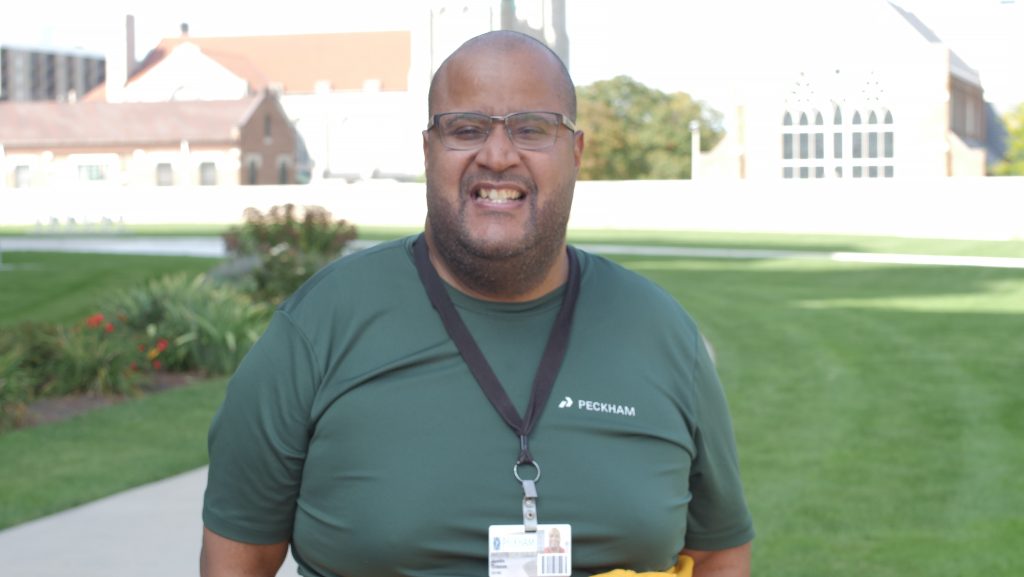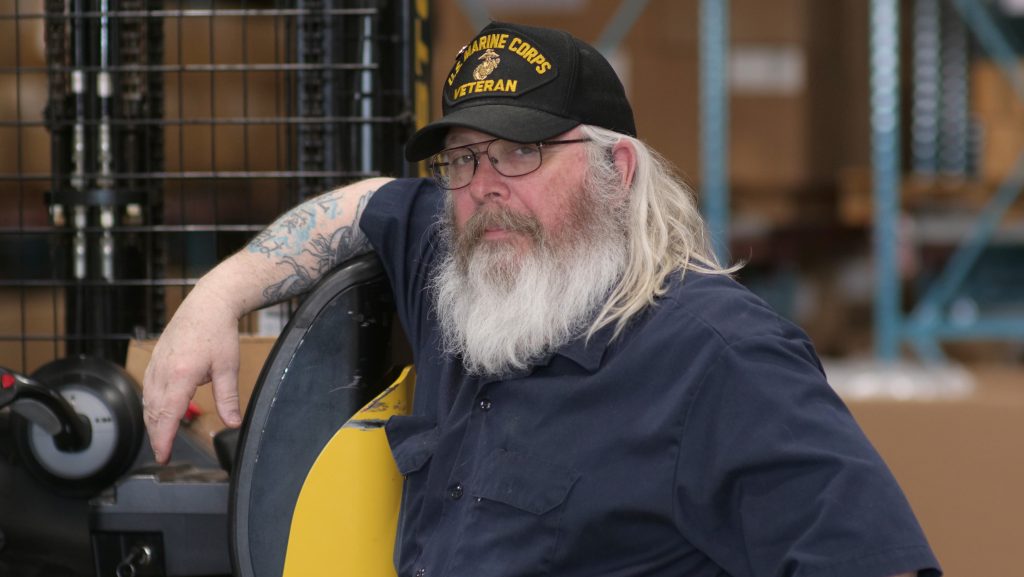After reading “Pandemic masks make police interaction with deaf people even harder” by Spartan Newsroom, we tapped our in-house expert Calvin Kennebrew, who specializes in deaf and hard of hearing services at Peckham for some insight on the topic. Read his thoughts below:
The pandemic has created substantial accessibility challenges for people who are deaf or hard of hearing as well as others with communication differences and disabilities. People wearing paper or cloth face masks often sound muffled, lip reading is no longer visible and facial expressions are hidden. People who are hard of hearing or deaf use lip reading as part of their strategy to communicate with hearing people. However, lip-reading alone is usually not enough to fully understand someone, as mouth movements for different syllables and words can look alike. Facial expressions are a key element of American Sign Language. People communicating in ASL rely on mouth movements and expressions for tone and nuance.
This article is timely, but simultaneously saddening as we approach the 31st year of the ADA. State and local police law enforcement agencies are not required to provide accommodations that would fundamentally alter the law enforcement service or that would result in an undue financial and administrative burden. When a requested accommodation would result in a fundamental alteration or undue burden, the police or law enforcement agency must take any other action it can to ensure that communication is as effective as possible.
Awareness is key. For example, it may be impossible to provide interpreter services when a police officer stops a car for routine traffic violation. The police officer should take any other action possible to communicate effectively, such as exchanging written information with the deaf. Realistically, Deaf communities are afraid of police as being handcuffed limits their only form of communication. The black deaf community also have been targeted for their signing being mistaken for gang signs and more.
The U.S. Department of Justice has prepared information for police and law enforcement agencies that is available at http://www.ada.gov/policeinfo.htm and includes the following:
Communicating with People Who Are Deaf or Hard of Hearing: ADA Guide for Law Enforcement Officers
Model Policy for Law Enforcement on Communicating with People Who Are Deaf or Hard of Hearing
Commonly Asked Questions about the Americans with Disabilities Act and Law Enforcement
Questions and Answers: The Americans with Disabilities Act and Hiring Police Officers
An eight-part video series called “Police Response to People with Disabilities”
Printable visor card for the deaf….
https://www.michigan.gov/documents/mdcr/Visor_card_525194_7.pdf
To learn more about Peckham or on how to build inclusive cultures within your workplace, please email info@peckham.org




